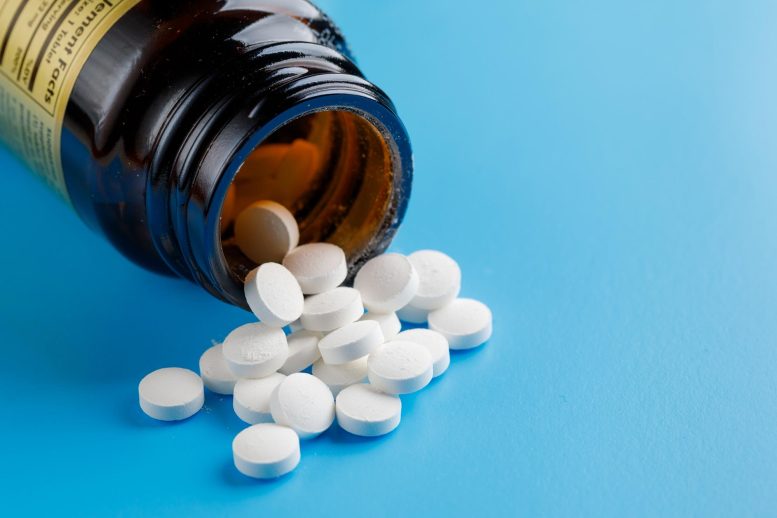
But quality of evidence variable, and no clarity on optimal formulation or dose.
A zinc supplement might help stave off the symptoms of respiratory tract infections, such as coughing, congestion, and sore throat, and cut illness duration, suggests a pooled analysis of the available evidence, published in the open access journal BMJ Open.
But the quality of the evidence on which these findings are based is variable, and it’s not clear what an optimal formulation or dose of this nutrient might be, caution the researchers.
Respiratory tract infections include colds, flu, sinusitis, pneumonia, and COVID-19. Most infections clear up by themselves, but not all. And they often prove costly in terms of their impact on health services and time taken in sick leave.
Zinc has a key role in immunity, inflammation, tissue injury, blood pressure, and in tissue responses to lack of oxygen.
As a result, it has generated considerable interest during the current pandemic for the possible prevention and treatment of COVID-19 infection.
In response to calls for rapid evidence appraisals to inform self-care and clinical practice, the researchers evaluated zinc for the prevention and treatment of SARS-CoV-2, the virus responsible for COVID-19, and other viral respiratory tract infections.
When that review was published, the results of several relevant clinical trials weren’t yet available, so this current review brings the available evidence up to date.
The review includes 28 clinical trials involving 5446 adults, published in 17 English and Chinese research databases up to August 2020. None of the trials specifically looked at the use of zinc for the prevention or treatment of COVID-19.
The most common zinc formulations used were lozenges followed by nasal sprays and gels containing either zinc acetate or gluconate salts. Doses varied substantially, depending on the formulation and whether zinc was used for prevention or treatment.
Zinc’s Preventive Effects
Pooled analysis of the results of 25 trials showed that compared with dummy treatment (placebo), zinc lozenges or nasal spray prevented 5 respiratory tract infections in 100 people a month.
These effects were strongest for curbing the risk of developing more severe symptoms, such as fever and influenza-like illnesses. But this is based on only three studies.
On average, symptoms cleared up 2 days earlier with the use of either a zinc spray or liquid formulation taken under the tongue (sublingual) than when a placebo was used.
During the first week of illness, participants who used sublingual or nasal spray zinc were nearly twice as likely to recover as those who used placebo: 19 more adults out of 100 were likely to still have symptoms a week later if they didn’t use zinc supplements.
While zinc wasn’t associated with an easing in average daily symptom severity, it was associated with a clinically significant reduction in symptom severity on day 3.
Side effects, including nausea and mouth/nose irritation, were around 40% more likely among those using zinc, but no serious side effects were reported in the 25 trials that monitored them.
No Universal Protection Shown
However, compared with placebo, sublingual zinc didn’t reduce the risk of developing an infection or cold symptoms after inoculation with human rhinovirus, nor were there any differences in illness duration between those who used zinc supplements and those who didn’t.
Nor was the comparative effectiveness of different zinc formulations and doses clear. And the quality, size, and design of the included studies varied considerably.
“The marginal benefits, strain specificity, drug resistance, and potential risks of other over-the-counter and prescription medications make zinc a viable ‘natural’ alternative for the self-management of non-specific [respiratory tract infections], the researchers write.
“[Zinc] also provides clinicians with a management option for patients who are desperate for faster recovery times and might be seeking an unnecessary antibiotic prescription,” they add.
“However, clinicians and consumers need to be aware that considerable uncertainty remains regarding the clinical efficacy of different zinc formulations, doses, and administration routes, and the extent to which efficacy might be influenced by the ever-changing epidemiology of the viruses that cause [respiratory tract infections],” they caution.
And how exactly zinc might exert its therapeutic effects on respiratory infections, including COVID-19, warrants further research, they conclude.
Reference: “Zinc for the prevention or treatment of acute viral respiratory tract infections in adults: a rapid systematic review and meta-analysis of randomized controlled trials” by Jennifer Hunter, Susan Arentz, Joshua Goldenberg, Guoyan Yang, Jennifer Beardsley, Stephen P Myers, Dominik Mertz and Stephen Leeder, 2 November 2021, BMJ Open.
DOI: 10.1136/bmjopen-2020-047474
Never miss a breakthrough: Join the SciTechDaily newsletter.
2 Comments
Where have you newbies been hiding. Y’all have to be very young. That’s been known since the 1980’s. Shake off the cobwebs breath in some fresh air. Works wonders.
“Zinc Supplements May Help To Stave Off Respiratory Infections Such As Colds, Flu, and COVID-19”
You dont say. Just what has been known for the last decade or so. Did you know that the sky is blue? I’ve heard rumors of this for some time now…